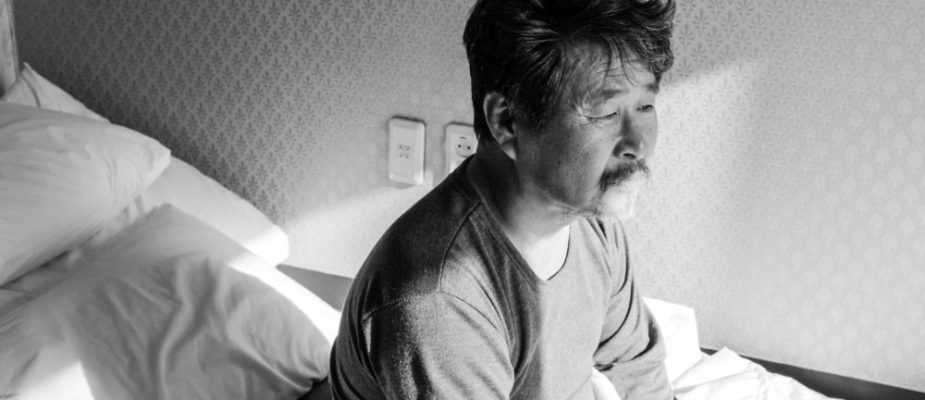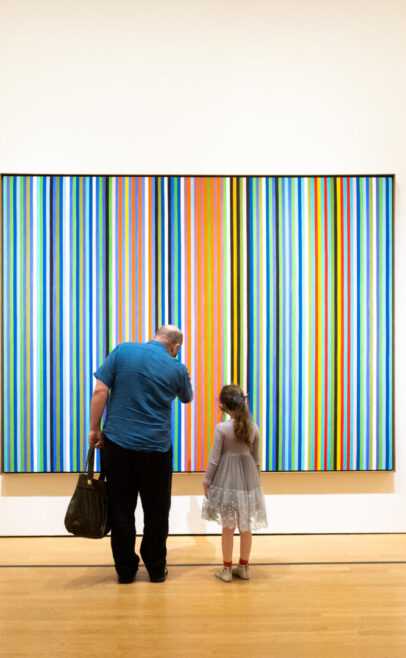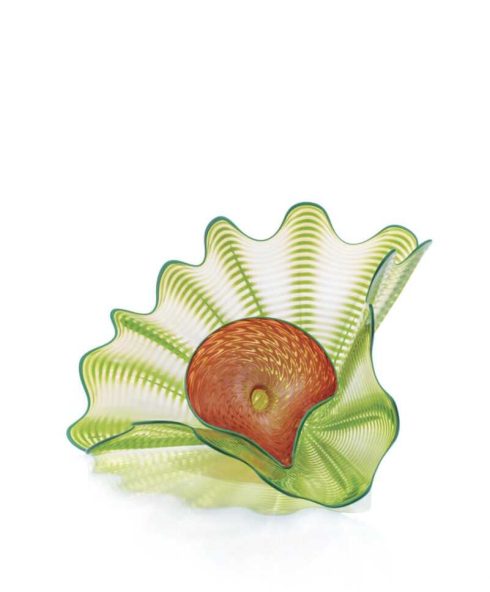The narrated opening credits of Hong Sang-soo’s Hotel by the River (2018), the writer-director’s twenty-third feature since he made his first in 1996, and the fifth to premiere in the span of less than nineteen months, makes mention of the fact that the film was shot between January 29 and February 14, 2018. Though this detail at first suggests the comparative modesty of Hong’s latest—a mere two-and-a-half weeks of shooting—it is no less revealing for the bone-chilling dates covered by the production, from the end of January to mid-February. Indeed, with the credits concluding and the film’s black-and-white imagery commencing, we are immediately struck by the bright-white winter light of the Korean film’s setting, pouring into the aging poet Young-hwan’s (Ki Joo-bong) cluttered suite at the Heimat inn. As the lightly elliptical scene continues, we see a good deal more of the blinding winter sun splashed across the early-day space, as well as the poet’s wispy white smoke as he prepares, following a phone call, for the arrival of his two adult sons.
As Young-hwan makes his way to the hotel’s ground-floor café, a panning camera movement leads the viewer to a second, female character, played by Hong axiom, and the director’s real-life girlfriend, Kim Min-hee (Right Now, Wrong Then; On the Beach at Night Alone). Standing before her room’s sliding-glass patio door, just as Young-hwan had moments before (with the actress previously making a brief cameo below), she too receives a phone call from an imminently arriving visitor, in this case a close female friend. Hong stages this scene as a very subtle variation on the first, down to the detail of whether or not coffee will be brought to her room. In so doing, Hong begins with an approach that suggests one of his most familiar motifs, the twice-told story, with the film-narrative resolving into a quotidian forking-path tale set in the eponymous riverfront hotel. However, unlike some Hong films, such as Virgin Stripped Bare by Her Bachelors (2000) or Right Now, Wrong Then (2015), which literally tell the same story twice, Hotel by the River uses the strategy to treat its parallel but unique narrative strands—though to the same effect of the viewer becoming aware of the contingency of the film’s storytelling.
With their respective visitors arriving, Hotel by the River ultimately settles in for a structure of alternation—with occasional intersections, such as Young-hwan’s awkward approach of the two very beautiful female friends in the freshly fallen snow—where scenes often unfold after characters wake from a sudden catnap or deeper sleep. There is a lightly dreamlike ambiance to Hotel by the River, and indeed it is a dream (of his own death) that compelled Young-hwan to summon his two sons. Yet, it is less the interpretations that sleep and the dream casts over the narrative, though film as a medium invariably finds this metaphor, than it is the sensation it evokes that explains its presence in this narrative. Hotel by the River is a film about a feeling, of sleeping, off and on, throughout a morning and afternoon, in one’s clothes—as blazing white winter light pours in through gauzy hotel curtains or large picture windows. In other words, Hotel by the River appeals to sensory memory, to the viewer’s familiarity with the above-described feeling, which no doubt is very close to a filmmaker and lead actress’s experience when they are as productive as Hong and Kim have been the past few years. Sleeping through the day in hotel rooms is no doubt part of everyday life for the autobiographical writer-director and muse.
Which leads us back to the film’s parallel storylines, plot-lines that allow the impossibly prolific Hong to work in multiple registers at once: in the first, centered on Young-hwan and his two sons, Hong opts for a more comedic than melodramatic cringe approach; none of their relationships, especially those with the younger, filmmaker son, are without complication, and few conversations don’t feature some degree of argumentation. The opposite is true for the close female friends, as is the generic mode the Hong adopts—lightly melodramatic with occasional moments of comedy. Hong’s parallelism allows this as the film, and the film’s two parts, move invisibly between these two registers, until a bathetic denouement that ensures its place among the darker and more emotionally forceful of the director’s efforts. The point is that Hong’s productivity, as always, finds some form of expression in a film that has to constantly tell, but in some ways, always tell the same story. Hong’s, and more recently, Kim’s too.
Hotel by the River is both archetypal work by the director and actress, and also an almost Platonic example of a winter film: the director’s latest is filled with heartbreak, melancholy, and loss, and is set against a lyrical wintertime landscape that makes exquisitely poetic use of freshly fallen snow, bright whites, and haunting grays and blacks. Very much unlike Grass (which I wrote about here, and will open at OKCMOA later this spring), this is a less experimental and more immediately affecting variation from one of the twenty-first century art cinema’s most essential voices; it is elevated, like last year’s On the Beach at Night Alone, by a superlative, award-winning performance (in this case from Ki Joo-bong), and as the dates listed in the opening credits corroborate, is painted in winter light, rather than by the interior illuminations and summertime sun of the aforementioned Grass.
Hotel by the River is this week’s curator’s choice at OKCMOA. Hong’s film plays one night only, Thursday, April 4, at 5:30 and 8 pm.









